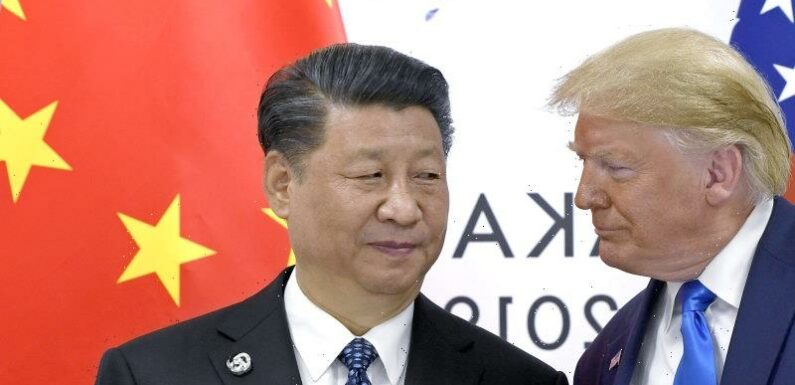
Washington: Countries from around the world have virtually no appetite to send troops or weapons to Taiwan if China invades, in apparent contrast to US President Joe Biden’s recent pledge to intervene militarily if the island nation was attacked.
A new report on global trends has also found that people from both sides of the Atlantic predict that America’s influence will drop significantly in the next five years while China rises, partly due to what researchers suggest could be “Trump trauma” in Europe – the lingering effect of Donald Trump’s foreign policy.
Donald Trump and Chinese president Xi JinpingCredit:AP
“Europeans are looking to what could happen in the US in 2024 [if Trump runs for office and is re-elected],” said Gesine Weber, a policy analyst at the German Marshall Fund, the think-tank that conducted the study.
“That is something that would be very problematic for them, particularly for a country like Germany, which is always reliant on the US as a security guarantee.”
The findings are contained in the latest Transatlantic Trends polling project, an annual survey of US and European public opinion on a range of issues, from foreign policy challenges and the economy, to support for NATO and the rise of other world powers.
According to the report, respondents from the 14 countries surveyed were particularly cautious when asked what actions their country should take should China invade Taiwan, with people from the US among several other nations who wanted their country to only take diplomatic steps.
Only 4 per cent of respondents said they would support sending arms to Taiwan, and just 2 per cent supported sending in troops.
Democracy is also perceived to be declining, according to the research, particularly in Turkey (where 46 per cent of respondents felt it was in danger); Italy and Poland (both 32 per cent) and the US (30 per cent – 10 points higher than last year).
The findings come less than two weeks after US President Joe Biden told 60 Minutes that the US would commit military forces in the event of an “unprecedented attack” by China – a move that would draw Australia into an unwanted future conflict.
Taiwan’s President Tsai Ing-wen watches soldiers operate equipment during a visit to a naval station on Penghu, an archipelago of several dozen islands off Taiwan’s western coast.Credit:AP
Pressed if that would involve US men and women – unlike in Ukraine, where the president has ruled out sending American troops – Biden answered: “Yes”.
While Biden sought to walk back his comments at the United National General Assembly last week, his sentiments, which he has made before, deviate from the traditional strategy used in Washington: to remain ambiguous about the sensitive issue of defending Taiwan.
Weber said the lack of appetite to assist Taiwan militarily could simply be geography. “It’s pretty far away for some respondents and they don’t regard it as their conflict, whereas Ukraine is right in their neighbourhood,” she said.
The Transatlantic Trends annual polling project takes in the views of people from 14 countries: Canada, France, Germany, Italy, Lithuania, the Netherlands, Poland, Portugal, Romania, Spain, Sweden, Turkey, the UK and the US.
Most countries had about 1500 respondents, who were predominantly surveyed between late June and early July 2022.
The report found that while most nations view the influence of the US in global affairs as positive, only 37 per cent expect the country to be the most influential in five years’ time compared to 64 per cent now. China’s influence, on the other hand, was predicted to nearly double (from 13 per cent to 25 per cent), and the EU’s would remain relatively steady (from 17 per cent to 15 per cent).
In somewhat better news for America – and set against the backdrop of the war in Ukraine – most respondents believe that the relationship between the US and Europe will remain stable in the next five years, while more than a quarter believe they will get closer.
Get a note directly from our foreign correspondents on what’s making headlines around the world. Sign up for the weekly What in the World newsletter here.
Most Viewed in World
From our partners
Source: Read Full Article

